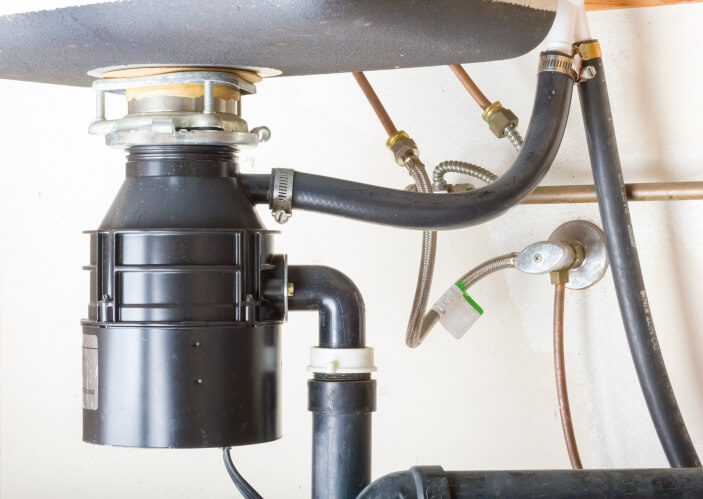
Considering a Sink Garbage Disposal
A sink garbage disposal is a motorized kitchen appliance that is attached under the sink and grinds and then sends different foodstuffs down the drain. There are a number of advantages and disadvantages to garbage disposals. Understanding both the pros and cons will allow a consumer to make a more educated decision on whether or not to purchase a sink garbage disposal.
Benefits of a Sink Garbage Disposal
- Convenience. If you have a sink filled with dishes and food, the cleanup process is a lot faster if you can simply put the baked potato skins, leftover bites of hamburger and other foodstuffs down the drain. Or if you or other family members in charge of clearing off the table after meal are used to picking out and throwing anything that can’t go down the drain, removing that step from the process saves time and trouble. In addition, most garbage disposals operate by a switch somewhere near the kitchen sink. All you have to down is run the cold water and turn on the switch to grind up the remaining food.
- Less waste to the landfill. If you reduce the amount of trash you leave on the curb for the garbage collector, that means that less trash is buried at whatever landfill is used by your town. Saving landfill space is a national concern and just one of the reasons that recycling is such an important issue.
- Quiet operation options. Many garbage disposals come with options for super quiet grinding. That means even when the garbage disposal is being used, the noise isn’t enough to disturb someone in another room or to even bother the person at the sink operating the sink garbage disposal.
Issues with a Sink Garbage Disposal
- Cost. A garbage disposal can cost anywhere from $80 to $250 to $300, depending on the options that come with the particular model. On top of the cost to purchase the disposal comes the cost to keep it running. Clogs can occur fairly easily, and those that block the pipes down the line can be very difficult for the average homeowner to resolve. That can lead to a visit by the plumber because your sink is out of commission until the pipe is cleared.
- Breakdowns. Anytime you add a motorized appliance to your kitchen, you run the risk of breakdowns. While the average garbage disposal is expected to have a life of at least 10 years, operating the disposal without creating a clog that could lead to a plumber’s call takes some expertise. There are types of foods that are dangerous for a garbage disposal, such as meats, eggshells and gravy. Some may argue that a disposal that doesn’t accept all leftover food isn’t worth the trouble of making sure the wrong thing isn’t thrown down the drain.
- Clog pipes down the line. Perhaps the most inconvenient clog is the type that doesn’t occur where you can reach down into the unit pick put the offending material. Instead, it’s common for some food to be washed down – past the S-trap under the sink – and then develop into a clog. That’s common with fatty foods that harden over time.